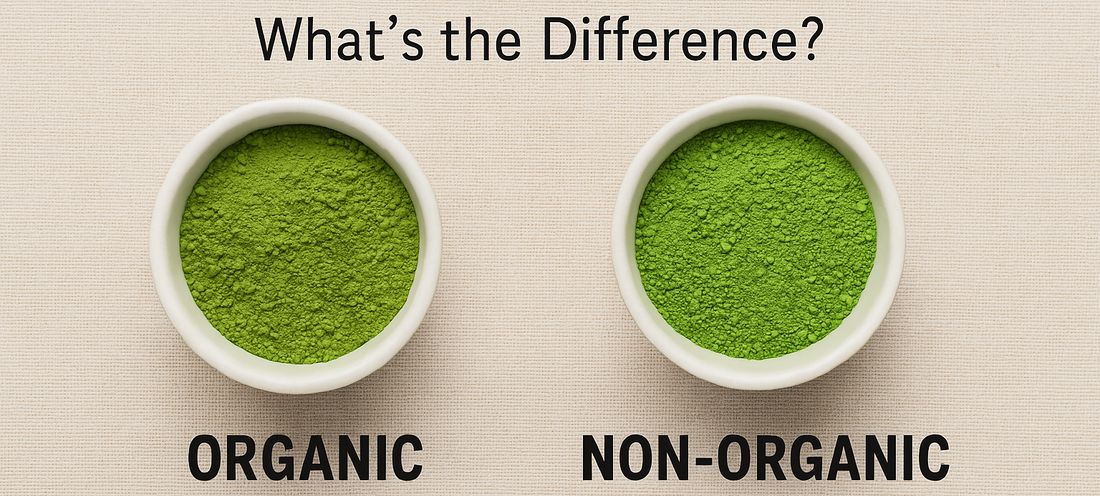When choosing matcha, many people ask the same question: Should I go for organic? At Hello Matcha, we believe in helping you understand the origin, craftsmanship, and quality behind every matcha we offer.
So, what is the real difference between organic and non-organic matcha? And how do certification systems like JONA and JAS ensure your matcha meets the highest natural standards?
Let’s explore.
What Is Organic Matcha?
Organic matcha is made from tea leaves grown without the use of synthetic pesticides, herbicides, or chemical fertilisers. In Japan, two key organisations oversee the certification of organic tea:
- JONA (Japan Organic & Natural Foods Association)
- JAS (Japanese Agricultural Standard)
For matcha to be labelled as certified organic, it must comply with the JAS Organic Certification, the official Japanese government standard for organic agriculture. JONA is one of the main certifying bodies authorised to issue JAS seals. These certifications are internationally recognised, including compliance with Australian, EU and USDA organic standards.
Organic farms must:
- Use only natural, approved fertilisers and soil treatments
- Rotate crops and preserve biodiversity
- Maintain chemical free soil for several years before certification
- Undergo regular inspections and residue testing
At Hello Matcha, our certified organic matcha comes from farms that meet both JAS and JONA certification standards, ensuring every sip is clean, safe, and environmentally sustainable.
What About Non-Organic Matcha?
Non-organic matcha isn’t inferior. In fact, our highest grade ceremonial matcha from Uji is not certified organic, and for good reason:
- Many traditional farms use small amounts of fertiliser to protect the delicate leaves during shading, which enhances flavour and colour.
- The cost and complexity of certification often exclude smaller, family run farms who still follow time honoured and low impact farming methods.
- Organic fertilisers alone can sometimes result in a more bitter, grassy flavour profile compared to conventional ceremonial blends.
That said, non-organic matcha must still meet Japan’s strict national safety standards, which are among the most rigorous in the world.
Taste, Colour, and Nutrition: A Comparison
| Organic Matcha | Non-Organic Matcha | |
|---|---|---|
| Farming Method | Certified chemical free (JAS/JONA) | May use small, approved fertilisers |
| Taste | Grassier, slightly more bitter | Rich umami, smoother profile |
| Colour | May be slightly less vivid green | Typically more vibrant due to nitrogen rich soils |
| Nutrients | High in antioxidants and L-theanine | High in antioxidants and L-theanine |
| Certifications | JAS / JONA Certified Organic | May not carry certification but still made to the highest quality and standards |
Which Should You Choose?
It comes down to personal preference:
- Choose organic matcha if you're focused on natural farming methods, sustainability, and full transparency, especially when seeking health and wellness benefits.
- Choose non-organic matcha if you're looking for rich umami flavour and traditional colour, especially for tea ceremonies or daily rituals.
At Hello Matcha, we offer both certified organic matcha and ceremonial grade matcha from trusted producers in Uji and Japan. All are rigorously tested and meet our high standards for quality and safety.
The organic label matters, but so does trust in your source. Whether you're drawn to the purity of JAS certified organic tea or the richness of expertly crafted non-organic matcha, Hello Matcha is here to guide you on your matcha journey with clarity, care, and respect for tradition.



